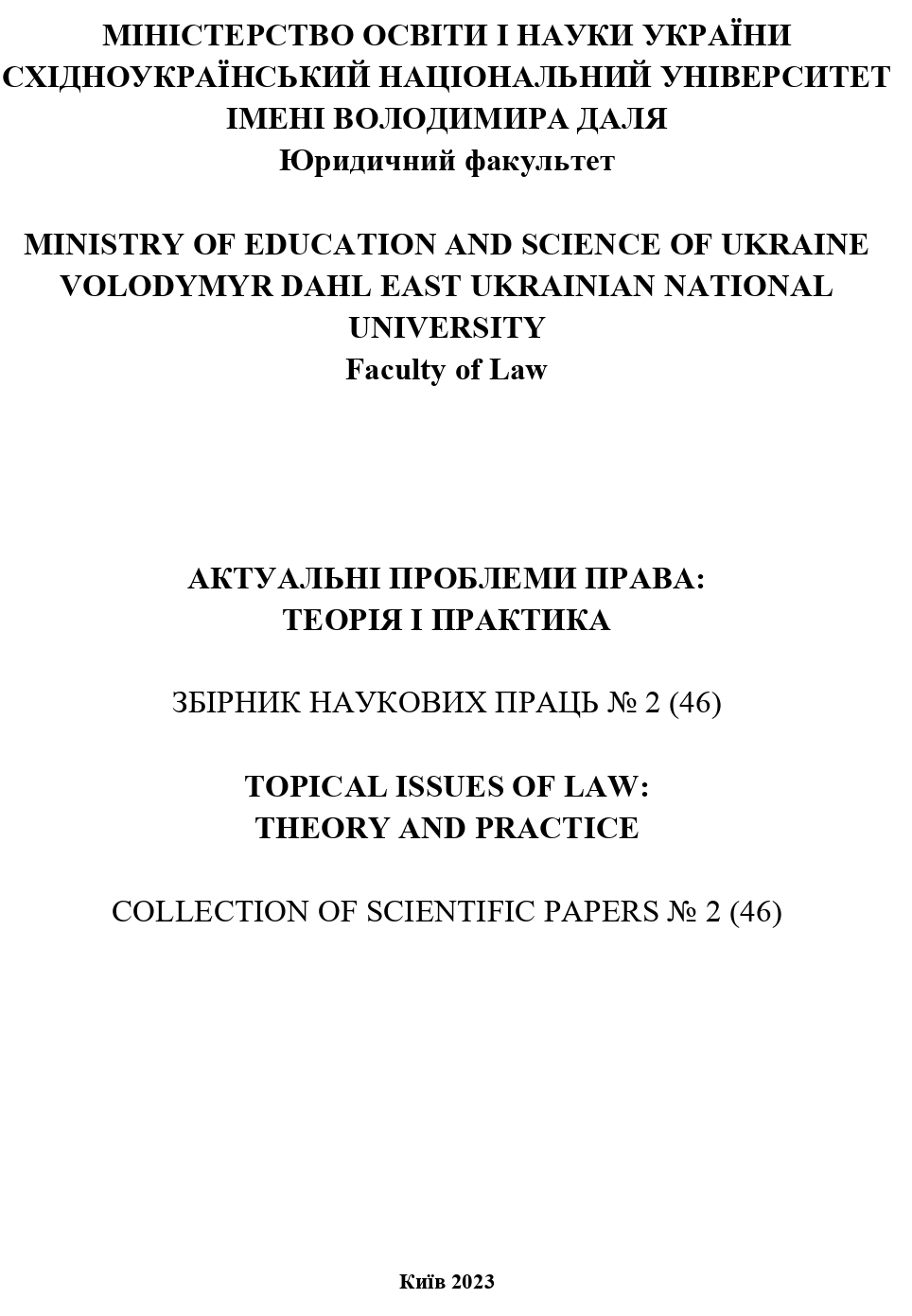THEORETICAL AND MOTIVATIONAL FEATURES OF INDIVIDUALS’ ASSISTANCE TO OPERATIONAL UNITS DURING OPERATIONAL AND INVESTIGATIVE ACTIVITIES AND COVERT WORK AT THE STAGE OF PRE-TRIAL INVESTIGATION
DOI:
https://doi.org/10.33216/2218-5461/2023-46-2-72-81Abstract
Annotation. The article is aimed at highlighting the points of view available in the scientific literature regarding the concept and essence of assistance of persons to operational units during operational and investigative activities and covert work at the stage of pre-trial investigation. With a view to ensuring a sustainable approach to the use of special terminology, with regard to the terms «assistance to operational and investigative activities» and «confidential cooperation», it seems more practical to use the phrase «assistance to operational units during operational and investigative activities and covert work at the pre-trial investigation stage». Undoubtedly, these terms are close in essence, but at the same time they are ambiguous in their content. The author discusses the problems of external and internal motivation of persons providing assistance.
It should be noted that the legal literature still lacks unanimity in the definition of the concept of «assistance of persons to operational units during operational and investigative activities and covert work at the stage of pre-trial investigation». From a scientific point of view, the essence, concept and content of citizens’ assistance, as well as their types, can be an independent subject of various studies.
The theory of persons’ assistance to operational units during operational and investigative activities and covert work at the pre-trial investigation stage, in accordance with the changing conditions of objective reality, constantly requires additional scientific reflection. This is due to the need to define the essence of such assistance, its goals and objectives, forms and types, as well as more private issues. An important place among these issues is occupied by the conceptual apparatus. An analysis of the situation in the field of forming the conceptual apparatus of assistance of individuals to operational units shows that the existing scientific language is far from perfect.
Motivating individuals to assist operational units during operational and investigative activities and covert work at the pre-trial investigation stage is a key element in the successful fulfillment of law enforcement tasks. Involving individuals in cooperation requires an effective motivation system that takes into account their interests, beliefs and needs. Successful motivation of individuals to provide assistance to operational units requires a comprehensive approach that takes into account both their personal beliefs and aspirations for justice, as well as material and ideological aspects of cooperation. A fair and effective incentive mechanism can greatly facilitate the tasks of law enforcement agencies in conducting pre-trial investigations and operational and investigative activities.
Key words: assistance, operational and investigative activities, confidential cooperation, motivation, confidant, classification of confidants.

